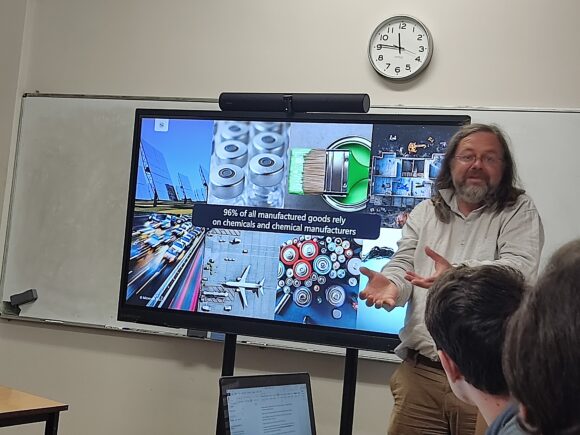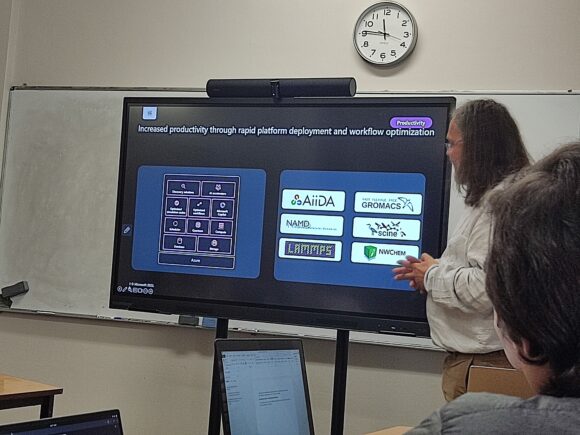On Monday, July 17, 2023, the Quantum Stellenbosch group had the privilege of hosting Dr. Matthias Troyer, a Distinguished Scientist at Microsoft Quantum. Dr. Troyer delivered an insightful presentation focusing on “Practical Quantum Advantage” and shared the latest progress in quantum computing by Microsoft.

Dr. Matthias Troyer is a quantum scientist at Microsoft Research. He is responsible for architecting Microsoft’s quantum computer and applications. He joined Microsoft in 2017, and his work is focused on accelerating scientific discovery globally through the benefits of a scaled, fault-tolerant quantum system while ensuring security and responsibility in its applications. Before joining Microsoft, he held a position as a post-doctoral fellow at the University of Tokyo and later returned to ETH Zurich as a Computational Physics professor.
Achieving Practical Quantum Advantage
During his talk, “Disentangling Hype from Reality: Achieving Practical Quantum Advantage,” Dr. Matthias Troyer emphasized the need to discern the real impact of quantum computing amid various speculations. He highlighted that quantum computers excel at solving large computing problems on small data, particularly in chemistry, materials science, and related fields. These game-changing solutions hold immense potential for designing better batteries, new catalysts, and quantum materials, and addressing climate change. However, it is essential to consider superquadratic speedups to overcome the inherent slowdowns in quantum systems compared to classical computers. To achieve practical quantum advantage, Dr. Troyer outlined key requirements: fault-tolerant quantum computers scaling to millions of qubits, tools for developing quantum algorithms, and a focus on small data/big compute problems.

In recognition of his contributions to the field of quantum physics and computational physics, Dr. Troyer has received prestigious awards. He is a Fellow of the American Physical Society and has been honored with the Hamburg Prize for Theoretical Physics and the Rahman Prize for Computational Physics.
